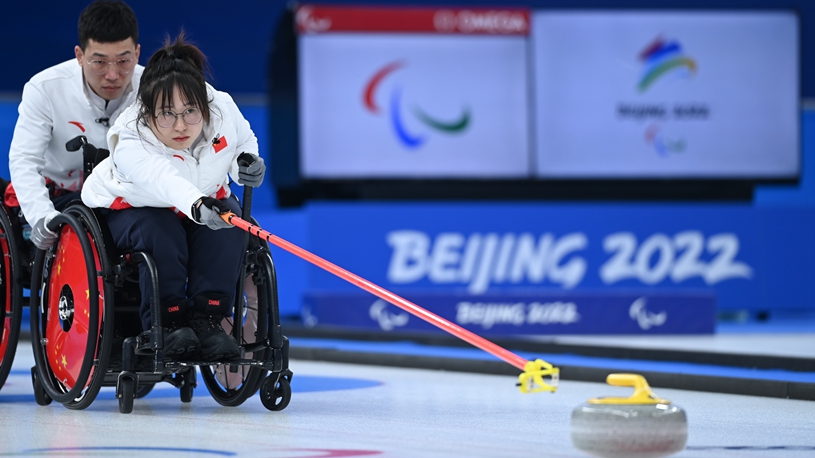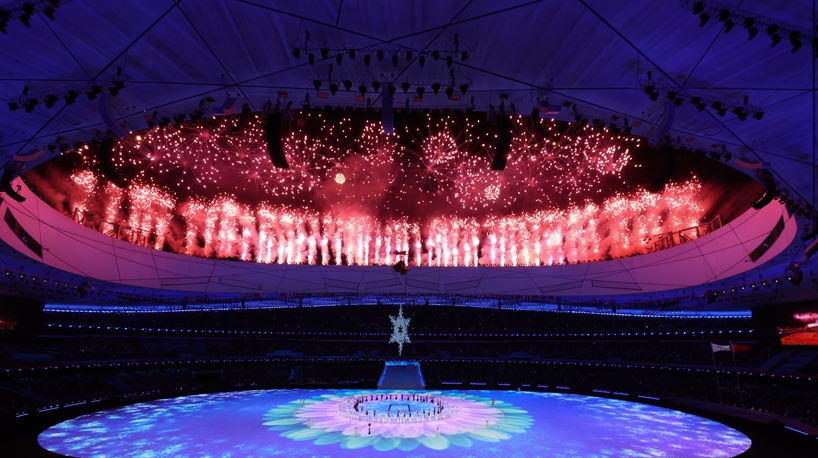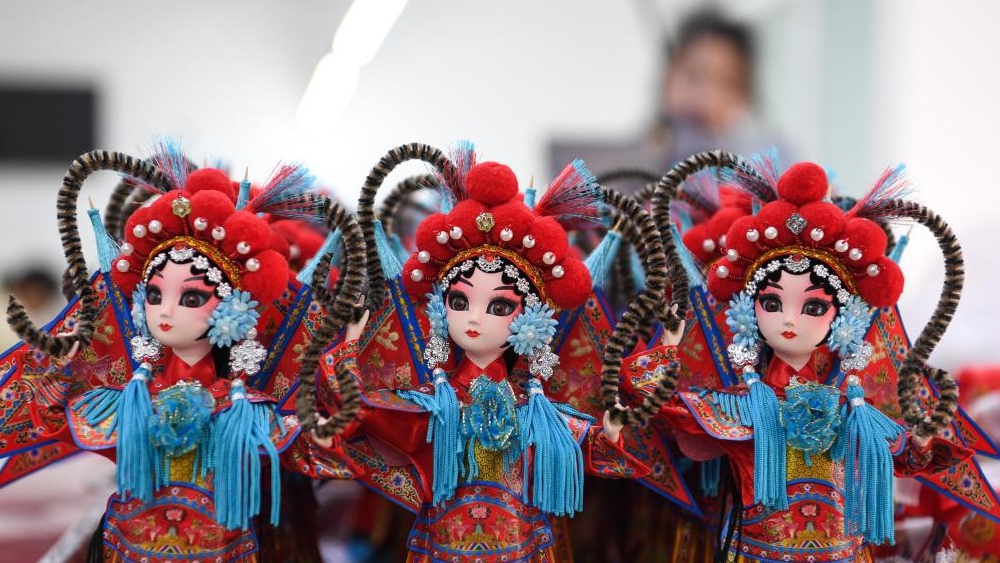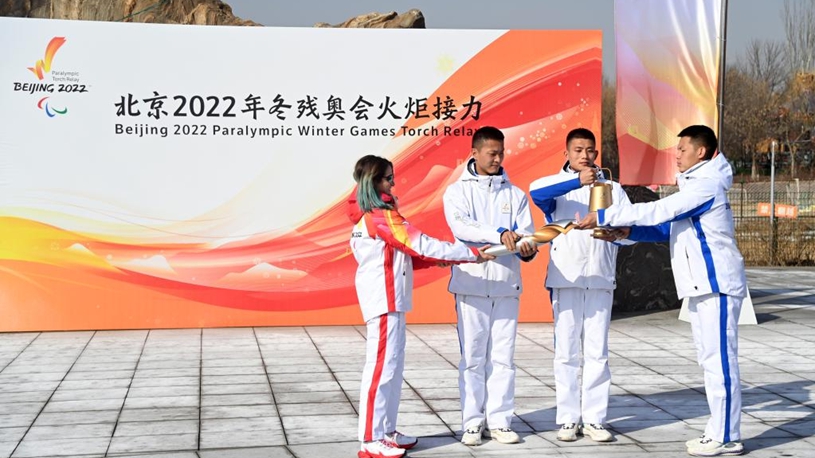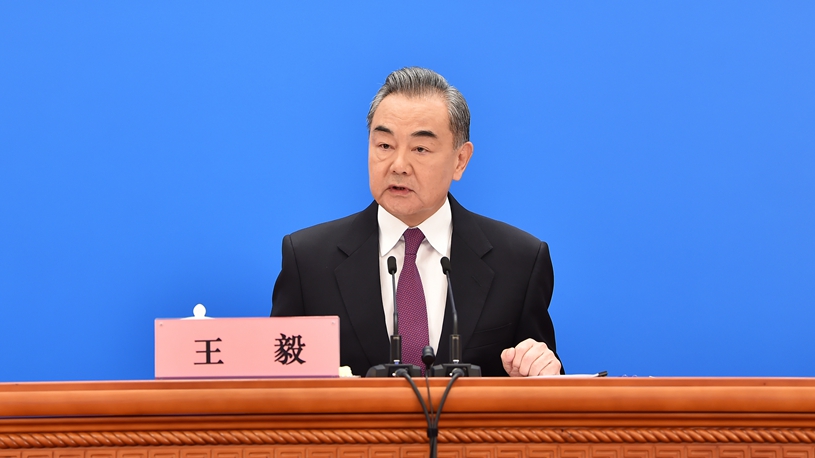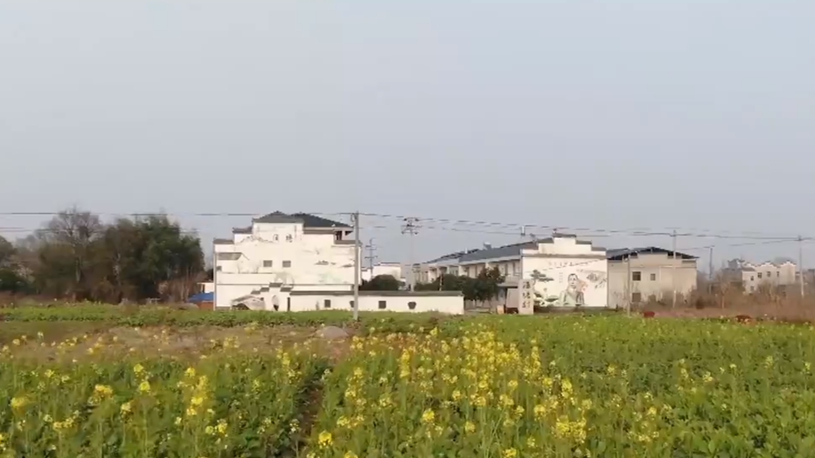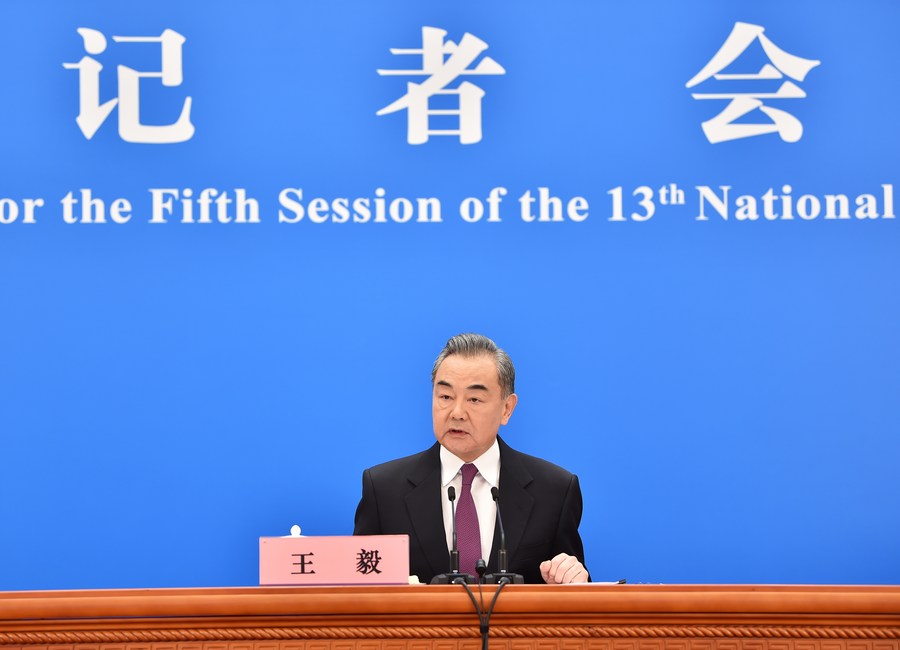
Chinese State Councilor and Foreign Minister Wang Yi attends a press conference on China's foreign policy and foreign relations via video link on the sidelines of the fifth session of the 13th National People's Congress (NPC) at the Great Hall of the People in Beijing, capital of China, March 7, 2022. (Xinhua/Chen Zhonghao)
* For the world, the year ahead continues to be full of challenges. At such a critical moment, countries need solidarity, not division; dialogue, not confrontation.
* China called on countries in the world to stay committed to ceasing conflicts through negotiation, resolving disputes through dialogue, and increasing mutual trust through cooperation.
BEIJING, March 7 (Xinhua) -- In the face of profound changes unseen in a century, China on Monday called on countries in the world to stay committed to ceasing conflicts through negotiation, resolving disputes through dialogue, and increasing mutual trust through cooperation.
The message was delivered by Chinese State Councilor and Foreign Minister Wang Yi at a press conference on the sidelines of the country's ongoing annual "two sessions."
"The right way forward lies in greater solidarity and cooperation under the banner of multilateralism and joint efforts to build a community with a shared future for mankind," said Wang.
MAJOR-COUNTRY RELATIONS
Responding to China's relationship with Russia, Wang said the two countries will maintain strategic focus and keep deepening China-Russia comprehensive strategic partnership of coordination for a new era.
He noted that the China-Russia relationship is grounded in a clear logic of history and driven by strong internal dynamics, and the friendship between the Chinese and Russian peoples is rock-solid.
On the China-U.S. ties, Wang said the two countries must replace the "competitive-collaborative-adversarial" trichotomy with the three principles of mutual respect, peaceful coexistence and win-win cooperation.
"Competition between major countries should not be the order of the day and zero-sum game is not the right choice," he said.
Noting that this year marks the 50th anniversary of the "Shanghai Communique," Wang said China and the United States need to re-embrace the conviction that helped the two countries break the ice five decades ago, and set out on a new journey.
However, the United States is still going to great lengths to engage in intense, zero-sum competition with China, keeps provoking China on issues concerning China's core interests, and is taking a string of actions to piece together small blocs to suppress China, which not only harm the overall bilateral relations, but also undermine international peace and stability, Wang noted.
Slamming the U.S. Indo-Pacific strategy, Wang said its real goal is to establish an Indo-Pacific version of NATO, and the strategy seeks to maintain the U.S.-led system of hegemony, undermine the ASEAN-centered regional cooperation architecture, and compromise the overall and long-term interests of countries in the region.
Lauding China-Europe fruitful cooperation last year, Wang said dialogue and cooperation between China and Europe on the basis of mutual respect and mutual benefit will add more stabilizing factors to an unstable world.
Noting that China-Europe cooperation is rooted in solid public support, extensive common interests, and similar strategic needs, Wang said no force can reverse the cooperation.
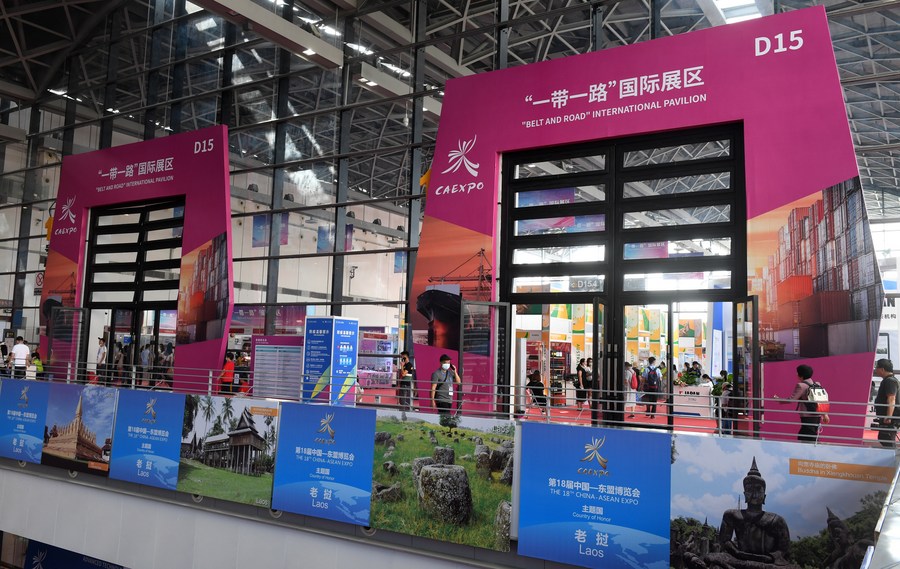
Photo taken on Sept. 11, 2021 shows the "Belt and Road" International Pavilion at the 18th China-ASEAN Expo in Nanning, south China's Guangxi Zhuang Autonomous Region. (Xinhua/Lu Boan)
COOPERATION IN YEAR OF CHALLENGE
For the world, the year ahead continues to be full of challenges. At such a critical moment, countries need solidarity, not division; dialogue, not confrontation, Wang told the press conference in his opening remarks.
China and the Association of Southeast Asian Nations (ASEAN) have established a model of the most dynamic and promising regional cooperation over the past three decades, Wang said.
"China and ASEAN must be forerunners in international cooperation against COVID-19, pacesetters in regional cooperation, and defenders of stability in the Asia-Pacific region," he said.
On China-Africa cooperation, Wang said China honors its commitment to cooperation with African countries and never makes empty promises.
Over the years, China has built over 10,000 km of railways, up to 100,000 km of highways, nearly 100 ports, and innumerable hospitals and schools in Africa, according to Wang. "These are not 'debt traps,' but monuments of cooperation."
Wang hailed the cooperation between China and Latin America and the Caribbean (LAC) region, saying that LAC is a region of promise and vitality and is not the backyard of anyone.
"What the people in this region need is fairness, justice and mutually beneficial cooperation, not power politics, hegemony or bullying," Wang said, adding that China will continue to deepen friendship, expand cooperation and work with LAC friends for a China-LAC community with a shared future.
The joint construction of the Belt and Road has maintained a sound momentum despite shocks from factors including the COVID-19 pandemic, Wang said, noting that since last year, 10 more countries have signed Belt and Road cooperation documents with China, bringing the Belt and Road family to 180 members.
China will work with the international community to continue advancing high-quality Belt and Road cooperation, making the initiative a "belt of development" to the benefit of the world and a "road to happiness" for people of all countries, he added.
UKRAINE & OTHER ISSUES
Calmness and rationality, instead of moves that pour oil on the flame and escalate tensions, are needed to resolve complex problems, Wang said while elaborating on China's position on resolving the Ukraine crisis.
The foreign minister put forth a six-point initiative on preventing a large-scale humanitarian crisis in Ukraine, including ensuring humanitarian operations abide by the principle of neutrality and impartiality, giving full attention to the displaced people in and from Ukraine, and supporting UN's coordinating role in channeling humanitarian aid and the work of the UN crisis coordinator for Ukraine.
China is willing to continue playing a constructive role in facilitating dialogue for peace, and work alongside the international community to carry out necessary mediation, he said.
Wang also answered questions regarding China's stance on other issues, including the situation in the Middle East, the Afghanistan issue, and the Korean Peninsula issue.
On the Afghanistan issue, the immediate priorities are to race against time to provide humanitarian aid, Wang said, urging the United States to immediately lift the freeze on Afghanistan's assets in the United States and various unilateral sanctions.
China is preparing for the third foreign ministers meeting among the neighboring countries of Afghanistan, and is willing to contribute to the durable stability and security of Afghanistan, he said.
Stressing the root cause for the Korean Peninsula issue is that the external security threats facing the Democratic People's Republic of Korea (DPRK) have remained unaddressed and its legitimate security concerns unresolved for too long, Wang reiterated China's commitment to continuing to play a constructive role in helping promote political settlement of the issue.
"We have noticed that the U.S. side has recently stated that it has no hostile intent toward the DPRK and is willing to solve the issue through diplomatic means, which is worthy of affirmation," Wang said. ■

